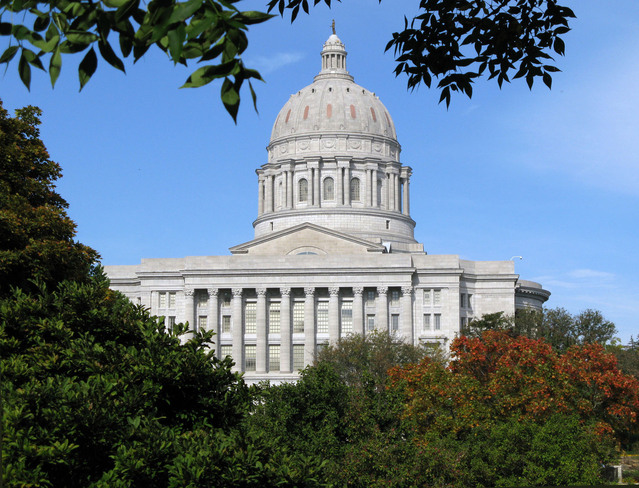Sen. Ed Emery (R-District 31), and Rep. Ken Wilson (R-District 12) filed the Safer Internet for Children Act that requires Internet service providers to block pornographic websites making them accessible only by a password available to those 18 and older. Bev Ehlen and Alissa Johnson of the CWA of Missouri along with the National Decency Coalition presented this bill to Missouri legislators as a “reasonable and doable solution to a child’s instant access to pornography” according to Ricky Darr of the National Decency Coalition (NDC) following research completed by NDC last year to determine how an Internet provider may play a role in creating a safer Internet for children.
Darr shared, “Missouri legislators have been concerned about this issue for some time and they were ready for a big solution. Internet service providers have the immense capability to protect children from instant access to Internet pornography, and making pornographic sites only accessible by a password is technologically feasible for ISP’s and will do the job to protect children. We haven’t met a person yet who thinks this is unreasonable.” In 2018, the Missouri Senate passed SCR52 recognizing the societal harms created by pornography.
The legislation follows a trend beginning in 2016 where eleven states have declared pornography as creating a public health crisis. Montana, Maryland, and Arizona have also introduced a resolution this year declaring pornography as a public health crisis. The United Kingdom passed a law in 2017 requiring online pornographers to verify the age of a user before making pornography accessible and is set to implement this year. Also, Tennessee introduced this month HJR0133 by Rep. John DeBerry (D-Memphis) calling on Congress to “readdress the crisis of children accessing pornography,” and “internet service providers to voluntarily block access to internet pornography by default but allowing adult customers to opt-out.”
According to Alissa Johnson of CWA, “It’s no longer a matter of if a child will be exposed to pornography, but when. The average age of first exposure is between 8-11 years old, and it’s past time for good legislation that will curtail those stats. This is the first time we’ve seen legislation filed that will protect freedom of speech rights while diminishing the illegal exposure of minors.” Pornography being a protected right is a common misconception in the U.S., and many Supreme Court cases have declared so since 1973 Miller v. California. Pat Trueman, of the National Center on Sexual Exploitation, often explains how obscenity (hardcore pornography) is not a protected right.
According to Darr, meetings with ISP’s and Missouri’s Attorney Generals office are “underway to make this bill a reality”. The first vote on the act is expected in early March.

